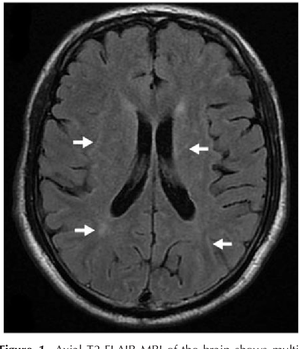
Kochi, Feb 23 (IANS) Snail-transmitted eosinophilic meningoencephalitis (EM) is a serious medical condition prevalent among children in south India and can lead to death or permanent brain and nerve damage, a study revealed on Friday.
EM is a medical condition characterised by inflammation of the brain and its surrounding tissues, associated with eosinophils, a type of white blood cell. This condition is often linked to parasitic infections, notably the rat lungworm Angiostrongylus cantonensis, a parasitic worm commonly found in snails.
The 14-year study by Amrita Hospital in Kochi establishes a significant association between snail exposure and EM, and reveals that more than half of the examined children had a history of direct contact with snails.
“We are now picking up a higher number of EM among children in this region especially since the last decade. Most of these children were initially treated as bacterial, viral, or tuberculous meningitis sometimes for several weeks. A high index of clinical suspicion with appropriate investigations will be the key for early identification, especially in endemic areas,’” said Prof K.P. Vinayan, Head of the Department of Paediatric Neurology at Amrita Hospital.
“These infections, potentially serious and capable of causing death or permanent brain and nerve damage, are more prevalent among children playing in dirt and soil in snail-infested areas. Ensuring cleanliness and hygiene in residential premises and properly cleaning vegetables consumed raw, such as in salads, are essential preventive measures,” Vinayan added.
The study findings underscore the urgency for healthcare professionals, parents, and policymakers to address this emerging threat.
Humans are incidental hosts of the worms, getting infected through direct consumption or contaminated water and vegetables. Children become vulnerable to this infection by coming into direct contact with snails or by consuming contaminated food or playing with toys that carry infective larvae. The larvae can then travel from the gut to the brain, causing EM.
Another route of transmission is by consuming salads containing uncleaned raw vegetables and by eating the raw flesh of monitor lizards, crabs, frogs, and shrimps as part of socio-cultural practices or particular culinary habits, said the experts from the hospital in the paper published in the journal Pediatric Neurology.
“In a paradigm shift, our study reveals that EM is not as rare as previously thought, particularly in Kerala during post-monsoon months. The increase aligns with the surge in giant African Snail (Achatina fulica) population over the past 1-2 decades, highlighting the heightened risk for children living in regions abundant with these snails,” said Dr. Vaishakh Anand, Department of Paediatric Neurology, Amrita Hospital.
Further, the study found that the affected children, with a median age of 3.9 years (ranging from 0.8 to 17 years), commonly showed symptoms such as fever, headache, irritability, squint, and early papilledema.
These symptoms appeared 3 to 42 days before admission. Peripheral eosinophilia, ranging from 9 per cent to 41 per cent, was observed.
Among the 24 children who underwent brain magnetic resonance imaging (MRI), 62.5 per cent had normal results, 8.3 per cent showed leptomeningeal enhancement, and 29.1 per cent exhibited nonspecific changes.
All children recovered without neurological deficits, following a standard treatment regimen of albendazole and oral steroids. The follow-up period ranged from one month to five years, with no reported recurrences, showing that timely identification and proper management might result in really good outcomes.
–IANS
rvt/vd
Disclaimer
The information contained in this website is for general information purposes only. The information is provided by TodayIndia.news and while we endeavour to keep the information up to date and correct, we make no representations or warranties of any kind, express or implied, about the completeness, accuracy, reliability, suitability or availability with respect to the website or the information, products, services, or related graphics contained on the website for any purpose. Any reliance you place on such information is therefore strictly at your own risk.
In no event will we be liable for any loss or damage including without limitation, indirect or consequential loss or damage, or any loss or damage whatsoever arising from loss of data or profits arising out of, or in connection with, the use of this website.
Through this website you are able to link to other websites which are not under the control of TodayIndia.news We have no control over the nature, content and availability of those sites. The inclusion of any links does not necessarily imply a recommendation or endorse the views expressed within them.
Every effort is made to keep the website up and running smoothly. However, TodayIndia.news takes no responsibility for, and will not be liable for, the website being temporarily unavailable due to technical issues beyond our control.
For any legal details or query please visit original source link given with news or click on Go to Source.
Our translation service aims to offer the most accurate translation possible and we rarely experience any issues with news post. However, as the translation is carried out by third part tool there is a possibility for error to cause the occasional inaccuracy. We therefore require you to accept this disclaimer before confirming any translation news with us.
If you are not willing to accept this disclaimer then we recommend reading news post in its original language.













